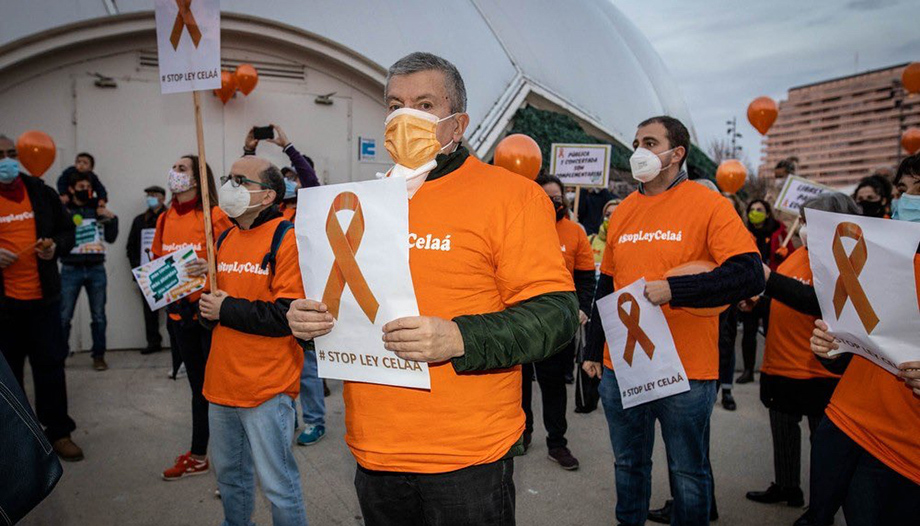The last elections in the Community of Madrid have stirred the political waters of our country. And, of course, the most varied analyses have immediately emerged to explain what happened. I would like to add some key points regarding education, which, in my opinion, has had a lot to do with it.
On the very night of the electoral victory, in the midst of the euphoria, President Ayuso did not forget to remind the parents of special education and, in general, to remember the freedom of families to choose the center they want for their children. And these days we have been able to read in the press as 'Isabel Díaz Ayuso will turn Madrid into the epicenter of the rebellion against the Celaá Law' and similar news.
In the days of the campaign when I was reading the slogan 'Freedom' could not but remind me of the cry of citizens in the two large demonstrations organized by the platform 'More Plural' precisely in the face of the imminent approval of the Celaá Law at the hardest moment of the pandemic. And the coincidence was no coincidence.
Some say that Díaz Ayuso has a nose for what is moving in the street and is attuned to it. Undoubtedly this action proves it. Because the campaign against the Celaá law was not launched by the political parties, but it was the civil society -families, unions, teachers, employers...- which moved against an interventionist law that curtailed the basic freedoms of families in the choice of center and the type of education they want for their children. It was only in a second moment, seeing the boom that this campaign was taking and how it was soaked in the citizenship, that all the political parties of the opposition joined en bloc to the orange tide against the Celaá Law.

They joined in so much that they even took as their own the cry of 'freedom', which more than a cry became a clamor. The minister, with a certain contempt, said at the time that it would be necessary to see how many families were mobilized in those demonstrations. There were many, no doubt. And the government itself acknowledged sotto voce that it was the first time in the legislature that something had made a dent in them.
And yet, undoubtedly, the government miscalculated the consequences of that action. It believed that once the demonstrations had passed and the new education law had been approved, these voices would be silenced. Nobody can be in the streets all day long, they thought. But people do not forget, and in the first occasion they have had to raise their voice, this time through their vote, they have once again said that they want the right of parents to choose the education of their children to be respected, whether it is a concerted center, special education, Religion class, differentiated education, in Spanish...
It is likely that the government will not mend its ways. And with that, it will move even further away from what people care about. Because when it comes down to it, we vote to a large extent thinking about our children, about our work, about the realities closest to us. And education is, as we have seen, one of the basic concerns of families.
That is why we must not forget that it is society that must mobilize to defend its rights. And if it does so, there will always be politicians who sooner or later will know how to listen to them. That is the road we have traveled and that is the path we must continue on.
To promote a lively and mobilized society that defends the freedom of parents to choose their children's education in freedom. To defend it in the streets, in personal conversations with acquaintances, in bars and bakeries, in television programs... and even at the ballot box, if necessary.
Teaching Delegate in the Diocese of Getafe since the 2010-2011 academic year, he has previously exercised this service in the Archbishopric of Pamplona and Tudela, for seven years (2003-2009). He currently combines this work with his dedication to youth ministry directing the Public Association of the Faithful 'Milicia de Santa Maria' and the educational association 'VEN Y VERÁS. EDUCATION', of which he is President.








